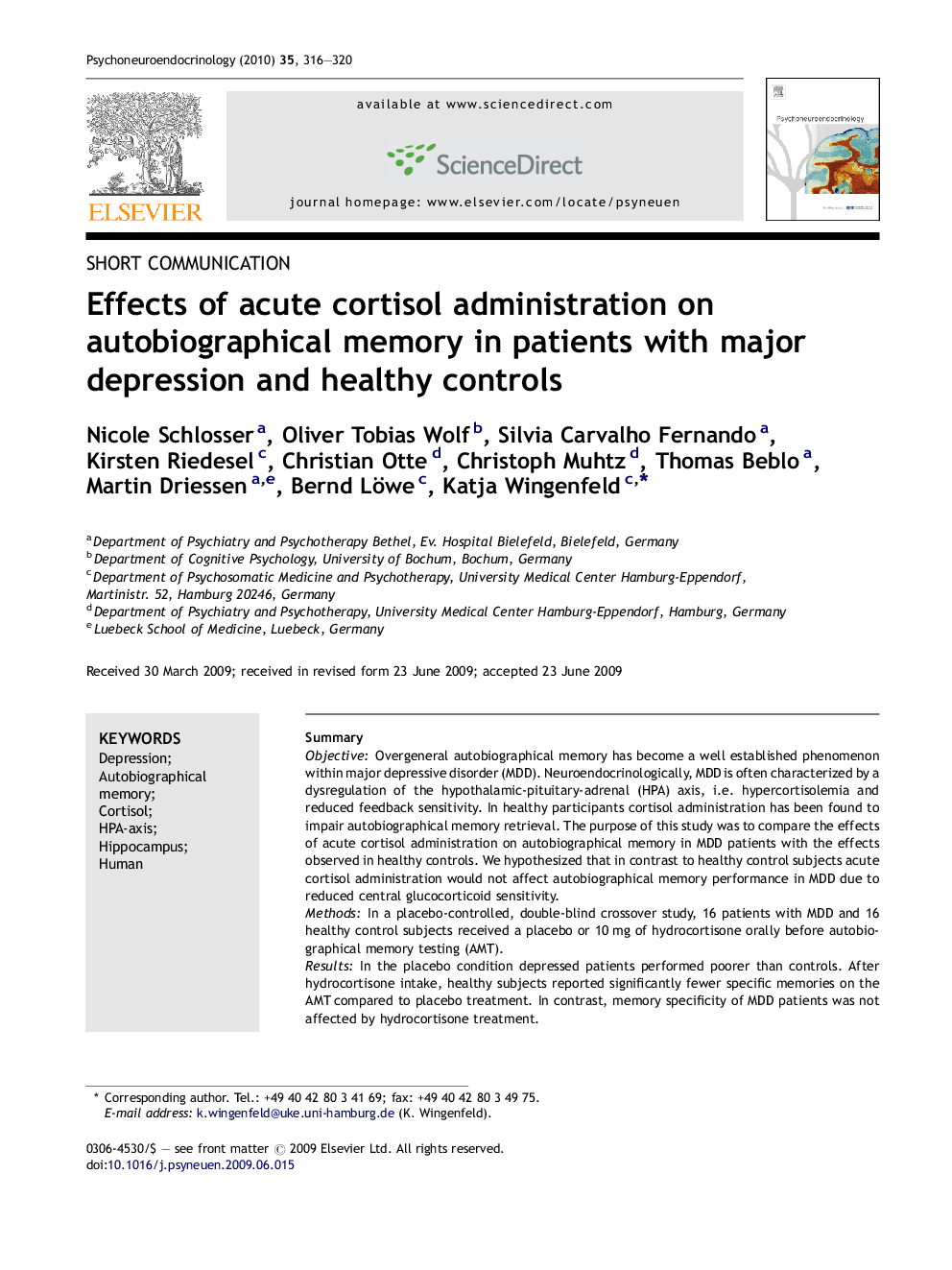| Article ID | Journal | Published Year | Pages | File Type |
|---|---|---|---|---|
| 336708 | Psychoneuroendocrinology | 2010 | 5 Pages |
SummaryObjectiveOvergeneral autobiographical memory has become a well established phenomenon within major depressive disorder (MDD). Neuroendocrinologically, MDD is often characterized by a dysregulation of the hypothalamic-pituitary-adrenal (HPA) axis, i.e. hypercortisolemia and reduced feedback sensitivity. In healthy participants cortisol administration has been found to impair autobiographical memory retrieval. The purpose of this study was to compare the effects of acute cortisol administration on autobiographical memory in MDD patients with the effects observed in healthy controls. We hypothesized that in contrast to healthy control subjects acute cortisol administration would not affect autobiographical memory performance in MDD due to reduced central glucocorticoid sensitivity.MethodsIn a placebo-controlled, double-blind crossover study, 16 patients with MDD and 16 healthy control subjects received a placebo or 10 mg of hydrocortisone orally before autobiographical memory testing (AMT).ResultsIn the placebo condition depressed patients performed poorer than controls. After hydrocortisone intake, healthy subjects reported significantly fewer specific memories on the AMT compared to placebo treatment. In contrast, memory specificity of MDD patients was not affected by hydrocortisone treatment.ConclusionsThe present findings replicate previous findings of impaired autobiographical memory retrieval after hydrocortisone treatment in healthy subjects and of impaired AMT performance in depressed patients. We speculate that the missing acute impairing effect of hydrocortisone on autobiographical memory in depressed patients might reflect reduced central glucocorticoid sensitivity. However alternative explanations cannot be ruled out.
